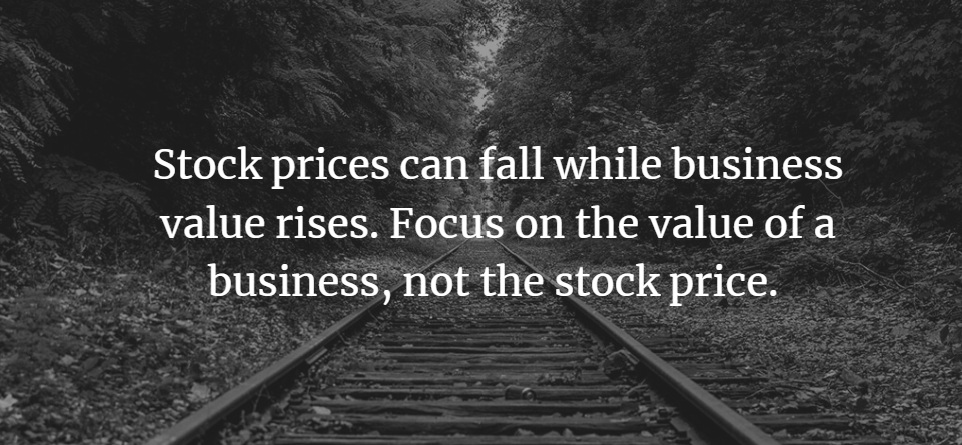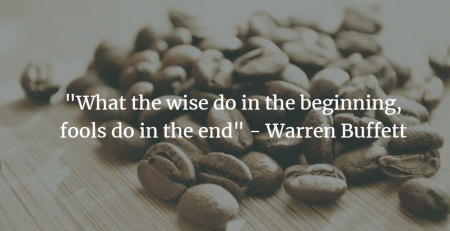Where is the bottom? When should I buy?
We hear many investors and commentators asking; is now a good time to invest? The market is falling, should we sell today and buy back when it’s fallen more? Put simply; no- one can answer those questions- don’t trust anyone who even tries to. There are simply too many external variables to even begin to forecast where the market will go in the short term. But what we can know is how much value we are being offered today compared to yesterday and compared to the broad opportunity set. And on that metric, our portfolio is offering more value to investors today than it was even as recently as the beginning of this year.
2022 has begun with an aggressive sell- off, with many so-called “growth” names having more than halved. As we said during the 2020 COVID sell- off (https://gci-investors.com/market-update-why-active-management-excels-in-times-of-crisis/) when markets appear most uncertain (interest rate fears, inflation fears, geopolitical fears, pandemic fears, etc.) the best approach is always to focus on the assets you own- the underlying companies themselves. Short term stock price movements can be wild, erratic, and often entirely un-related to genuine business value.
We take comfort in the fact that our expected portfolio returns have expanded considerably compared to just a few months ago. We also take comfort in the defensibility of our portfolio companies, even in the face of concerns like rising interest rates or inflation. Unlike many of the very high multiple, popular theme or growth names that have seen the largest selloffs this year, we seek a significant margin of safety when it comes to the earnings of the companies we own. If an investment opportunity can be disrupted by a small change in a discount rate, it probably wasn’t that good an opportunity to begin with.
Why can we be confident that our portfolio offers greater value today than just a few months ago?
We own several companies within our portfolio where the underlying businesses continue compounding shareholder value, yet at the same time their stock prices have fallen significantly. Many investors see falling prices and rush to sell, but if the asset itself is increasing in value, they’d be better off buying more instead. Think of it logically-
if your neighbor just sold their house for 30% less than it’s worth, would you rush out to sell yours too? No, you’d look at the actual value of your home and likely sit and wait for better prices. There is just something about equity investing that causes this logic and rationality to go out the door. As real examples, here are some of the worst performing stocks (not businesses) in our portfolio in recent months, compared to what is actually going on at the business level as reported in their recent earnings:
Air Products (APD): Revenue was +26%, EPS +19% on a year over year basis. They’ve committed $33bn of new development capex over the next 5 years at a rate of return which should generate more than $3.5bn of recurring cash flow, growth of around 25% vs today.
Share Price so far this year: -21%
Share Price over the last year: -8%
Meta Platforms (FB): There has been a period of significant headwinds given the negative Apple IOS advertising changes, but revenue still managed to grow 27% annualized over the previous two years, with EBIT up 20% annualized over the same period. This year the company is likely to generate around $48bn in free cash flow that can be used to repurchase shares, which they bought back more than 3% in the last quarter alone. Remains one of the best advertising platforms on the planet, even after negative Apple IOS changes.
Share Price so far this year: -38%
Share Price over the last year: -24%
GFL Environmental (GFL): Grew adjusted free cash flow by over 50% year over year, continued to expand margins, reduced the cost of their debt, and successfully integrated CAD$5bn of acquisitions over the last 2 years that also come with significant route-based synergies. Operationally the company continues to execute exceptionally well on an expanding opportunity set.
Share Price so far this year: -24%
Share Price over the last year: -1%
Ocado Group (OCDDY): The UK retail operation continues to grow at double digits. International business now has 12 operational CFCs vs 4 last year, by the end of this year that number will be closer to 20. Ocado Smart Platform customers continue to increase their orders of CFCs based on increasing end market demand that we believe will continue to grow well into the future.
Share Price so far this year: -21%
Share price over the last year: -49%
In each case above, the businesses have become more valuable while the stock prices have fallen. We make no comment about the reasoning or potential duration of such price moves, but there is one key takeaway – if a business is becoming more valuable while its stock price is falling, we are getting a better deal as an investor. We are fundamentally buying more for less.
We have no way of knowing if the market will go lower or not from here, and nor is it hugely relevant, given that short-term performance has little impact on long-term compounding. What is very clear is that focusing on underlying business value gives the active investor a tremendous advantage in being able to buy appreciating assets at a time when others are selling.
Legal Disclaimer: This document expresses the views of the author as of the date indicated and such views are subject to change without notice. Globescan Capital, Inc. is DBA as GCI Investors, and has no duty or obligation to update the information contained herein. Further, Globescan Capital, Inc. makes no representation, and it should not be assumed, that past investment performance is an indication of future results. Moreover, any information or opinions contained in this document are not intended to constitute a specific recommendation to make an investment.
The information contained herein does not constitute and should not be construed as an offering of advisory services or an offer to sell or solicitation to buy any securities or related financial instruments in any jurisdiction. Certain information contained herein or linked to is based on or derived from information provided by independent third-party sources. Globescan Capital, Inc. believes that the sources from which such information has been obtained are reliable; however, it cannot guarantee the accuracy of such information and has not independently verified the accuracy or completeness of such information or the assumptions on which such information is based.






